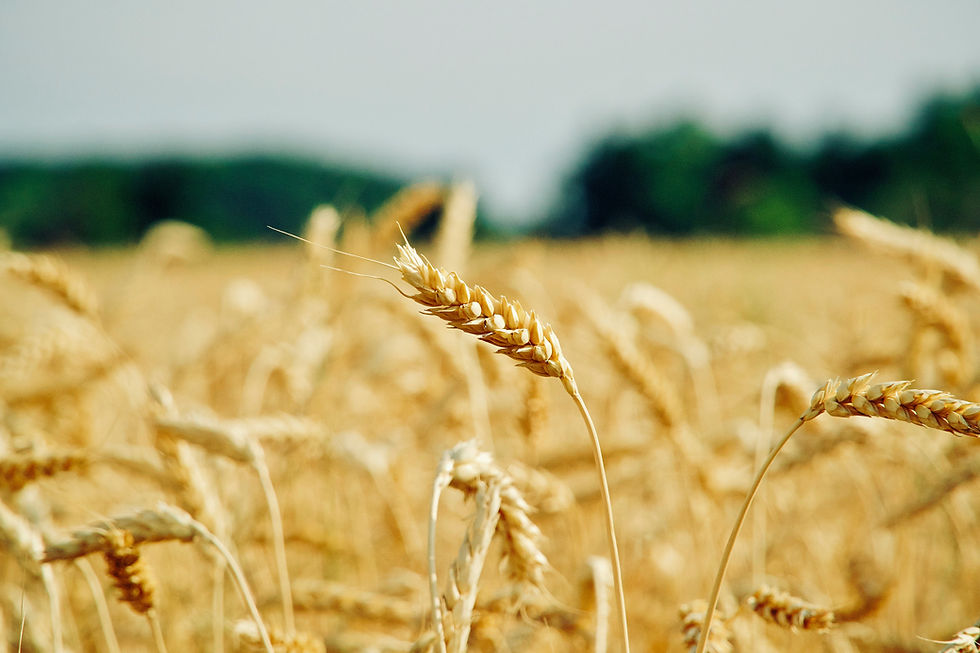The Power of Optimism
- Nicholas Krehbiel
- Jun 1
- 3 min read
Updated: Jun 2
I grew up in southwest KS. City of Pratt, to be exact. I didn't grow up on a farm, but I lived about as close as you could to it with my father, uncle, and grandfather all working as coop managers. My four siblings and I all grew up in the coop, helping out in the scale houses or elevator through high school and college. We saw first-hand the culture of wheat harvest and how for about 3 weeks, everything in town revolved around bringing in the crop. You worked long hours, went above and beyond in customer service because, as a colleague of mine so profoundly said, "the best kind of wheat in the field is stubble."
"Making it" on the plains today includes oil, grain, wind power, and in some isolated cases....catfish. (not pictured - other, traditional forms of livestock)
The last few years have been hard for my people back home. Years of drought and uncertain markets have taken their toll on the farmers, the coops, and the economy as a whole. Historically, from the point of view of the United States, that sector of the nation has been known as "Next Year Country." Moving out there during the years of the Homestead Act and railroad expansion, settlers could lose their crop to drought, storms, locusts (!!!), and other plagues.
The hope was, "well, there's always next year." Great Depression? Next year. 1950s drought? Next year. President Carter's wheat embargo? Next year. Surplus production and ultra-low prices? Next year. President Trump's tariffs? Next year. And on and on and on........
That was not a hard and fast rule, to be sure. People lost their farms and their livelihoods to the bank. Others simply threw in the towel and said I can make more money with less uncertainty somewhere else. Alas, some people starved. There have been movements, actions, statements, and such bringing light to the plight of the ag community throughout history. Populism, the Progressive Era, Farm-Aid, marches to Washington, a federal farm bill, state and federal programs, and other events have all grown out of these dynamics.

But for those who have endured, it has come through that power of optimism: the belief in better times to come. I saw it first-hand a couple of weeks ago back on the family farm south of Pratt (I didn't grow up on a farm, but dad has bought a number of quarters over the past decade or so, building a nice little operation). The wheat looks fantastic and optimistically, it could be the best crop in years. The farmers in the local restaurants have a bit more pep in their step. The people in agribusiness are more optimistic. Bankers are liking the outlook. Whether it holds remains to be seen.....but when the wheat looks like it does in the pictures I took, the years of optimism can payoff in huge ways.

Remember former N.C. State basketball coach Jim Valvano's heart-wrenching speech at the ESPY's in the early 1990's? He was so ravaged by cancer at that point, Mike Krzyzewski and Dick Vitale had to help him off the stage. But he was a fighter who was making the most of what he could from a terrible situation. I was just a kid but while watching it live, I was moved to tears by his famous line. "Don't give up. Don't ever give up." That's the heart of the culture in "Next Year Country." You may have to pivot, you may have to change, you may have to alter your focus. But we never, ever give up.









Comentarios